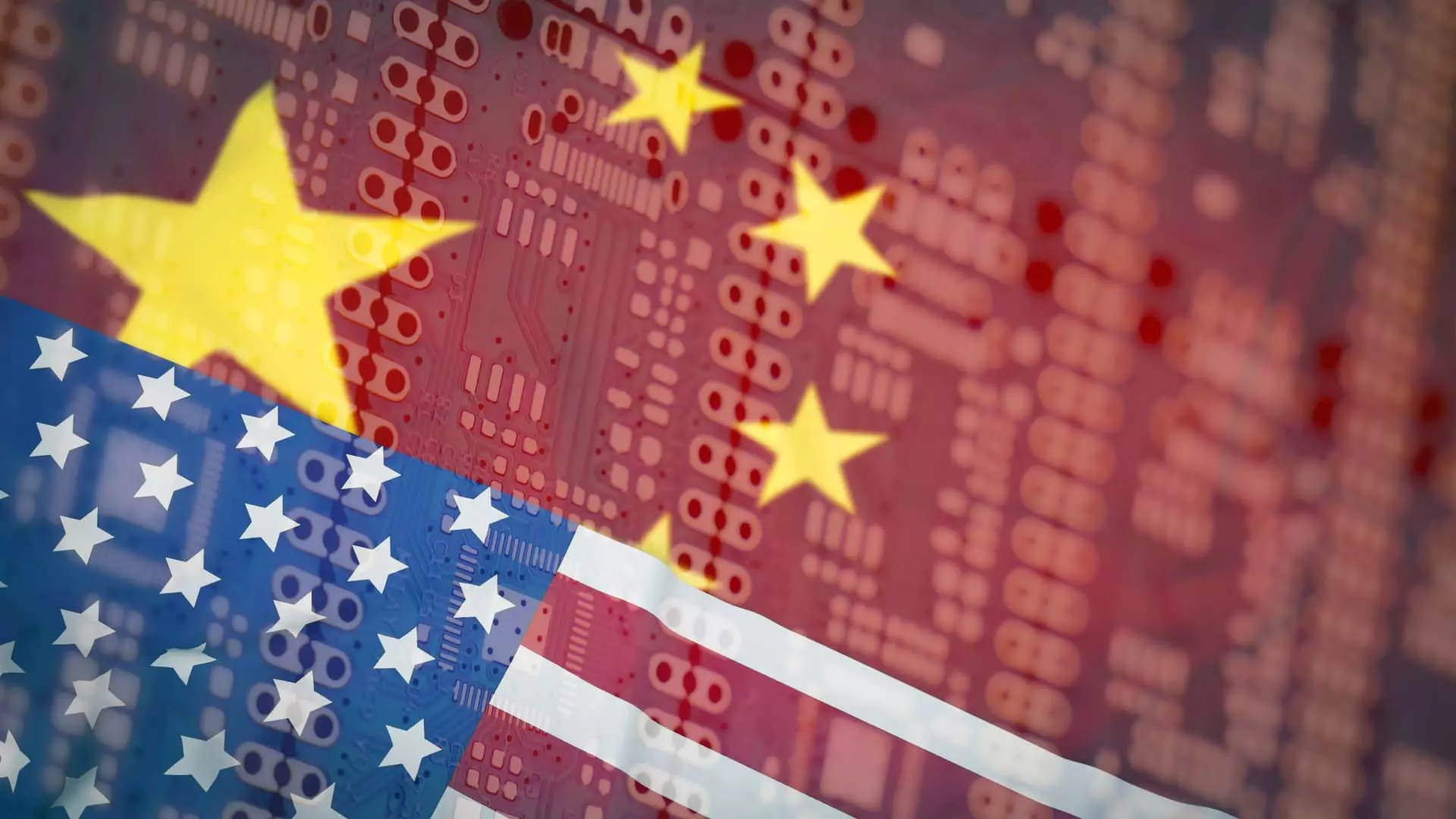As the geopolitical landscape shifts and the U.S. tightens its grip on semiconductor exports, Chinese tech giants Tencent and Baidu display remarkable adaptability. The response from these companies reveals a combination of strategic foresight and technological ingenuity. Analysts suggest that not only are they stockpiling essential components, but they are also innovating their AI practices to maintain competitiveness. This highlights a crucial aspect of the global technology race: adaptation and resourcefulness in the face of restrictive measures.
Strategic Chip Stockpiling
In the face of U.S. export regulations on semiconductors, Tencent’s president, Martin Lau, openly addressed the company’s strategic stockpiling of chips. GPUs, which are pivotal for training AI models, have become an essential asset. Lau’s assertion that Tencent possesses a “pretty strong stockpile” of these chips is indicative of a proactive approach to potential supply chain disruptions. By leveraging an existing inventory of high-end chips, Tencent can sustain its development for several upcoming generations without being overly dependent on new acquisitions that may be restricted by U.S. policies.
However, the prevailing trend among many American companies is to continuously expand GPU clusters, operating under the belief that larger numbers yield better performance. In stark contrast, Lau argues that Tencent has effectively tapped into optimizing its existing resources. This evolution towards efficiency over sheer quantity reveals a deep understanding of both the technology and the marketplace. By focusing on superior utilization of their stock, they can stretch their existing resources further, a strategy likely to become crucial as global supply chains become increasingly vulnerable.
Software Optimization: A Game Changer
Diving into the core of AI operations, Tencent has invested significantly in software optimization. Lau highlighted this development as a means of enhancing the inference process—the actual execution of AI tasks. This strategy involves using fewer GPUs more effectively to accomplish tasks that traditionally would require significantly more processing power. By continuously refining their software, Tencent is demonstrating that substantial gains can be achieved without the necessity for exponential hardware expansion.
Lau’s commentary suggests a pivotal shift in focus. Rather than chasing after ever more powerful hardware, Tencent’s strategy embraces the potential of software-driven solutions. This is not just a technological pivot—it is a mindset change within the industry, favoring innovation and creative problem-solving over simply amassing resources. As AI applications demand increasing computational prowess, embracing software innovations could be the key to sustaining progress, especially when hardware acquisitions may be limited.
Baidu’s Full-Stack AI Approach
Baidu, on the other hand, champions its “full-stack” capabilities. By integrating cloud computing resources with AI model development and real-world applications, Baidu illustrates a comprehensive approach to navigating the current semiconductor crisis. Dou Shen, president of Baidu’s AI cloud business, emphasized that even when the most advanced chips are unavailable, the company can still deliver impactful applications thanks to its holistic infrastructure.
This full-stack model gives Baidu a significant edge, as it combines multiple facets of technology into a cohesive ecosystem. A notable aspect of this approach is the ability to manage costs and resources effectively within its technology framework. As reliance on massive computing power escalates, competence in managing GPU clusters becomes a distinguishing competitive advantage for Baidu. The emphasis on software optimization and efficient resource utilization underlines Baidu’s mission to lead despite external challenges.
Domestically Developed Semiconductor Gains
Both companies are also tapping into the rising tide of domestically developed semiconductors. With China investing heavily in homegrown technologies, Baidu’s remarks about advancements in domestic semiconductors reflect a broader national strategy to counteract foreign dependency. While industry experts acknowledge that China is still trailing the U.S. in some areas of chip technology, it is clear that strides are being made. This evolving ecosystem could reduce the impact of U.S. restrictions over time.
Gaurav Gupta from Gartner indicates that while challenges remain, there is a consistent and ambitious drive within China to bolster its semiconductor ecosystem—from raw materials to chip manufacturing. This comprehensive development may not only ensure self-sufficiency in the long run but also foster innovation that can eventually rival existing U.S. technologies.
Facing U.S. Restrictions: A Double-Edged Sword
The U.S. export restrictions serve as a double-edged sword. While they aim to curb the rise of Chinese tech giants, they inadvertently push Chinese companies like Tencent and Baidu towards greater innovation and resilience. This unintended consequence could accelerate China’s progress in AI and semiconductor technologies, creating a more competitive landscape than anticipated by U.S. policymakers.
Industry executives in the U.S. have also begun to express frustration over the tight regulations, arguing that they are more detrimental to American firms than to their Chinese counterparts. The competitive landscape is shifting; as these two companies continue to adapt and innovate, one must wonder whether the protective measures will ultimately serve the intended purpose or push the Chinese tech industry further ahead in the global race for AI dominance.

